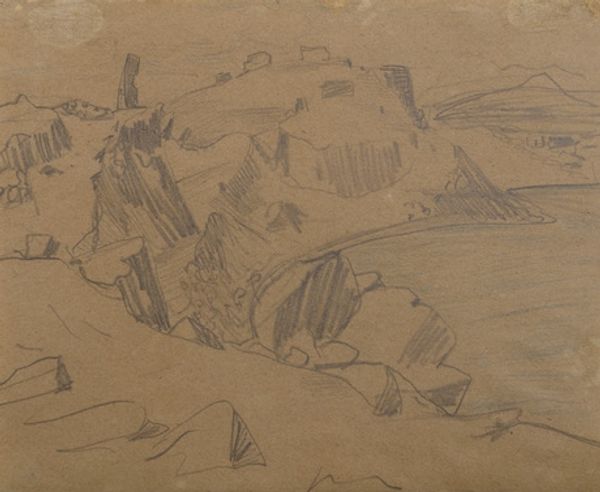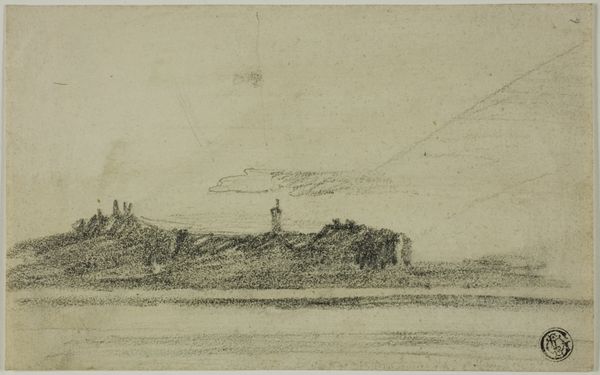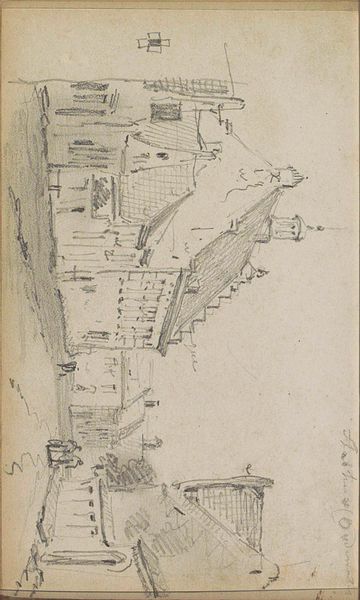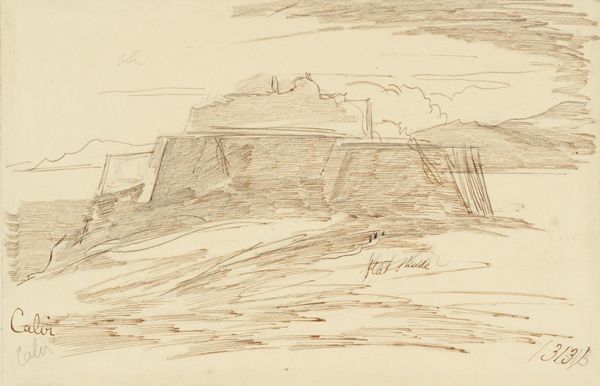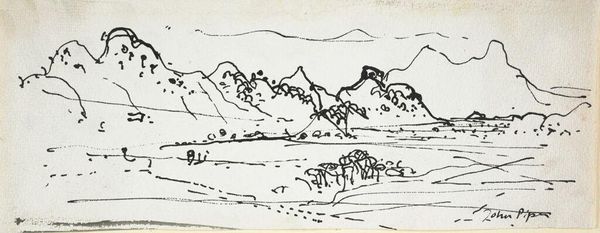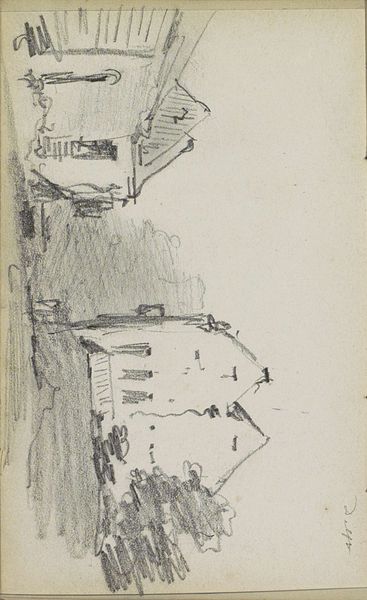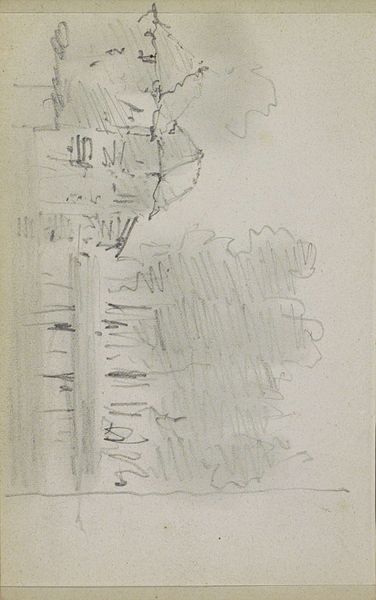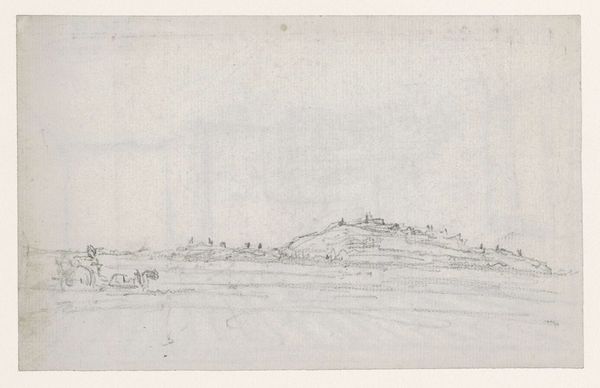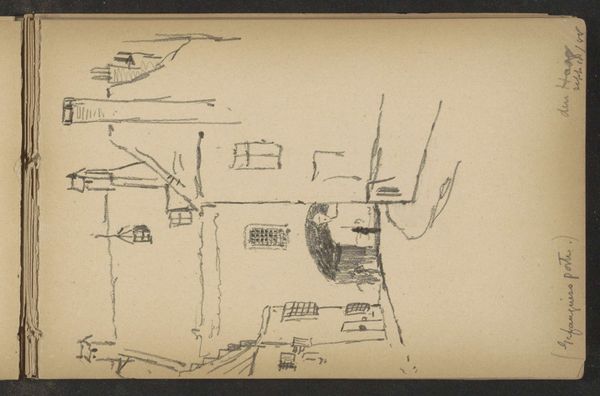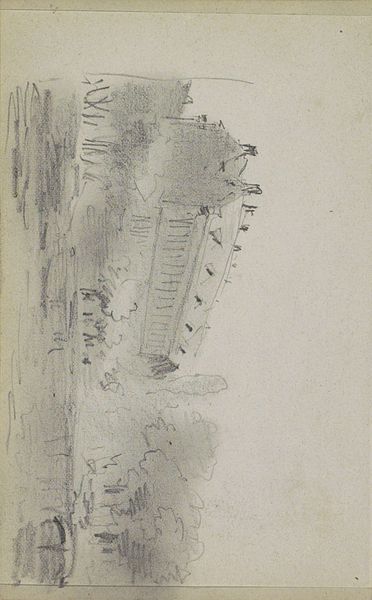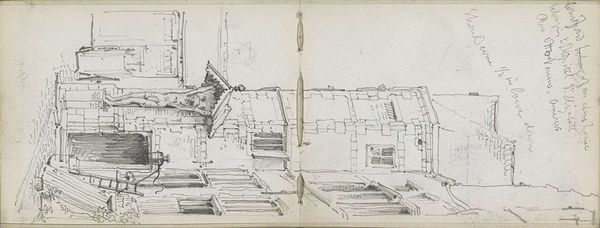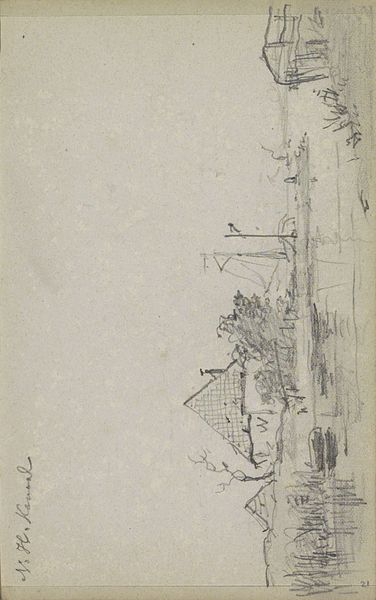
#
amateur sketch
#
toned paper
#
light pencil work
#
pencil sketch
#
incomplete sketchy
#
personal sketchbook
#
coloured pencil
#
watercolour bleed
#
watercolour illustration
#
watercolor
Dimensions: 10.5 x 27 cm
Copyright: Public domain
Curator: It looks almost dreamlike, doesn't it? A cluster of buildings perched atop a hill, faint outlines suggesting a story half-told. It reminds me of those sleepy medieval villages in old manuscripts, a haven nestled in the earth's folds. Editor: Precisely. This watercolor and pencil sketch is called "Town (Monastery on hills)" by Nicholas Roerich, created in 1911. You're right, it possesses that ethereal quality, amplified by the textured paper and soft washes. What strikes me is how the monastery dominates the scene. Roerich often used such imagery to comment on spiritual and political power. Curator: Power... interesting. To me, it feels more like refuge, a quiet defiance of the world below. Notice the strokes, how the pencil almost vibrates with the slope of the land. He isn't just drawing; he's feeling the weight, the history embedded in that hilltop. I wonder what he was thinking. Maybe about those who sought shelter within those very walls, running away from something? Or towards something. Editor: It is tempting to overlay romantic projections! We know Roerich was deeply involved with the spiritual movements of his time and that landscape played a huge part in the artist's cultural critique. Russia at the beginning of the 20th century was a powder keg and, for a symbolist, imbuing the landscape with a kind of redemptive possibility offered an escape from increasingly stark socio-political conditions. Curator: Yes, and think of how subtly he captures the light, bathing everything in this amber glow... It almost seems to whisper of secrets, things known only to the stones themselves. Even as a "sketch", this feels more complete somehow. Editor: Sketches are a chance to think through making! They are inherently exploratory, and this work’s apparent unfinished state heightens its enigmatic appeal, prompting us to fill in the blanks with our interpretations. Roerich, I think, presents a space to question the assumed authority, the perceived stasis, of the traditional seats of power. It becomes more a point of departure. Curator: So, not a period at the end of a sentence but an ellipse... leading onwards, always hinting at possibilities. Maybe he's urging us to find our own mountaintop, build our own haven of meaning? Editor: Indeed. Perhaps that's why it resonates even now. An image imbued with its history, inviting us toward future speculation.
Comments
No comments
Be the first to comment and join the conversation on the ultimate creative platform.

